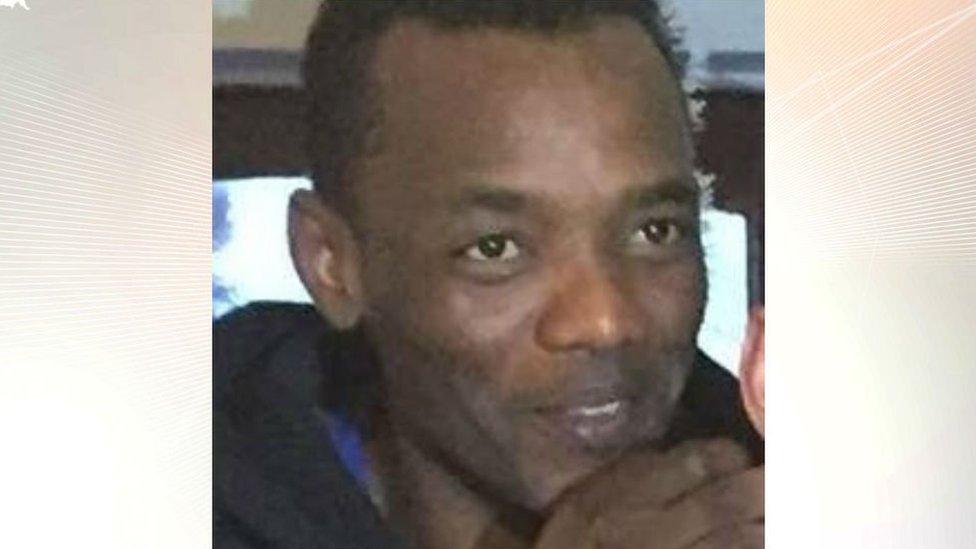West Midlands mental health: 'They just think it's another asylum seeker'
- Published
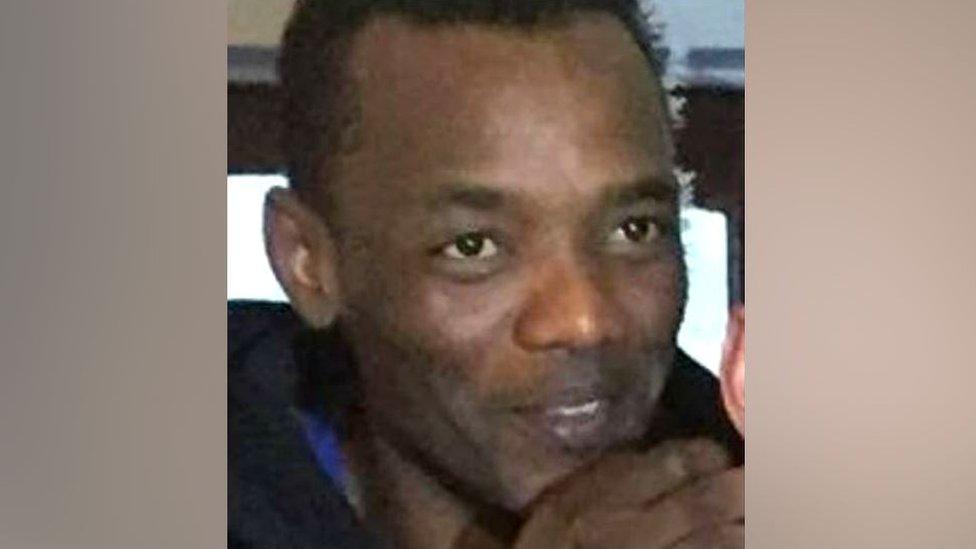
Khalid Yousef was decapitated when he was attacked in a betting shop in 2018
Members of Birmingham's Sudanese community have accused mental health care providers of a lack of support and other failures after two men died.
One man, Mohammed Ahmed, died after being sectioned and another, Khalid Yousef, was killed by a man whose illness had not been identified.
A relative of Mr Ahmed said the way he was treated by providers was unfair.
Birmingham and Solihull Mental Health NHS Trust said it would work with the Sudanese community to address concerns.
"They just think it's another asylum seeker coming from somewhere in Africa - he doesn't have any relatives here and what's going to happen?," said Mr Ahmed's uncle, Alsadiq Khamis.
"They don't care. That's what I believe because the way they treated him wasn't fair."
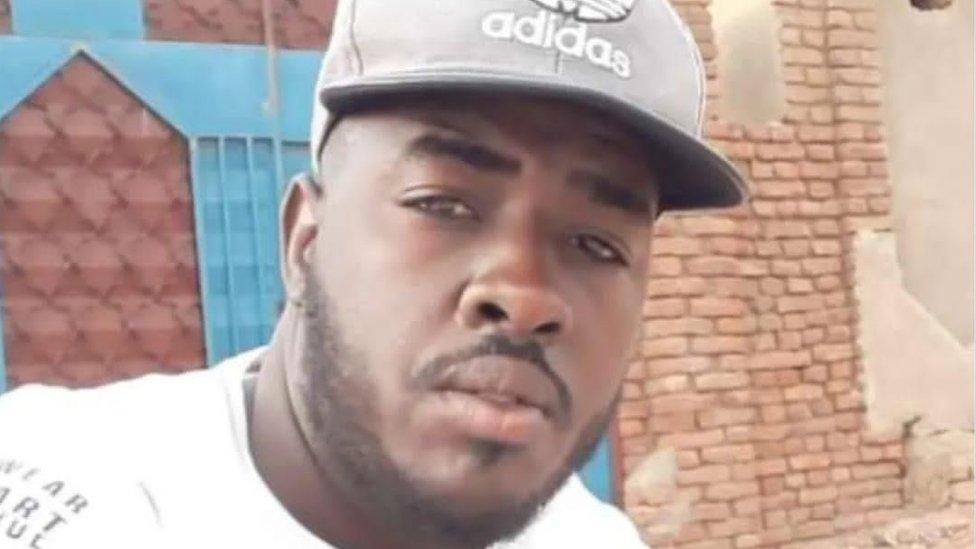
Mohammed Ahmed died in January after being released from Oleaster Centre in Birmingham
Mr Ahmed arrived in the UK in 2020 as an asylum seeker.
He was sectioned in December last year and admitted to the Oleaster Centre in Birmingham after setting fire to his accommodation.
His family said he was released without their knowledge on 20 January.
Three days later, a community organisation wrote to the ward to express concerns about his safety and that of the public.
Mr Ahmed was arrested after he tried to attack a man with a knife shortly after he was discharged. His family said they heard nothing from authorities until he was found dead in his cell on 30 January.
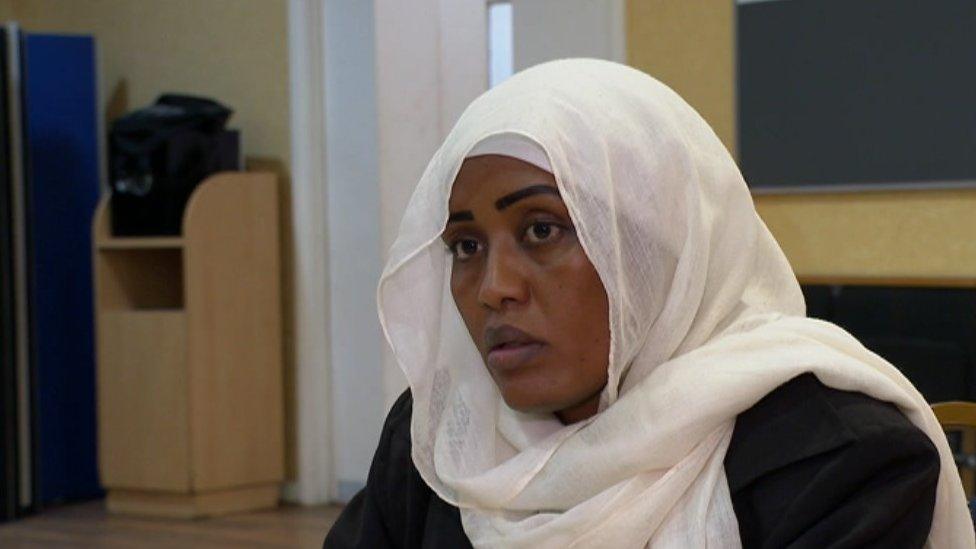
Khadidja Fadoul said it was "traumatic" to know another death had happened
His death came five years after Mr Yousef, 28, was decapitated in a betting shop in Handsworth.
His killer and friend, Hassan Mustapha, had previously detailed delusions he was having about the Queen to police officers.
He was diagnosed with paranoid schizophrenia after the killing and an inquest into Mr Yousef's death heard he would not have been killed had his attacker been referred to mental health services the month before.
Speaking for the first time, Mr Yousef's cousin, Khadidja Fadoul, said: "It's very difficult when you see a loved one killed in such a horrific way.
"We live in pain every day. It's traumatic for us and to see it happening again. We want to see action taken."
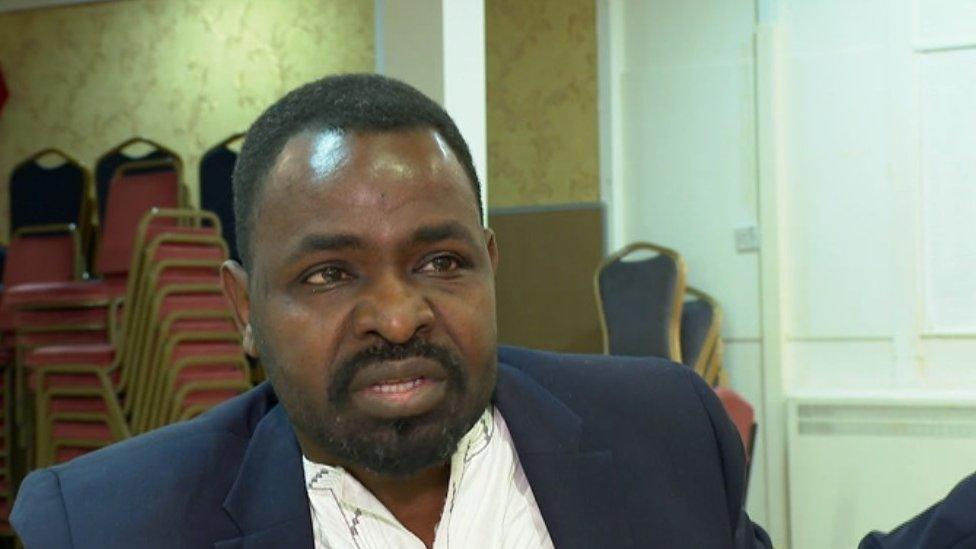
Alsadiq Khamis said his nephew was treated unfairly
Abdallah Idriss is secretary general of The Zaghawa Community Association - originally from the Darfur region of Sudan. He said these members of his community had escaped genocide there only to die in England.
Speaking about Birmingham and Solihull Mental Health Trust, he asked: "If they have two such cases - how many others?"
"If prevention measures had been put in place after Khalid's death, we wouldn't have lost this life," he said.
In a statement, Birmingham and Solihull Mental Health Trust offered its condolences to the families and said it strived to provide the best possible assessment and treatment and gave thorough assessments to people in custody.
"On our in-patient units, we adopt a collaborative discharge process - working with other system partners - which enables us to support our service users with regards to accommodation, social care needs and further follow-up," it said.
"We would like to work with the Zaghawa Community Association to help address their concerns and ascertain how we can best support them."

Follow BBC West Midlands on Facebook, external, Twitter, external and Instagram, external. Send your story ideas to: newsonline.westmidlands@bbc.co.uk, external
Related topics
- Published21 June 2022
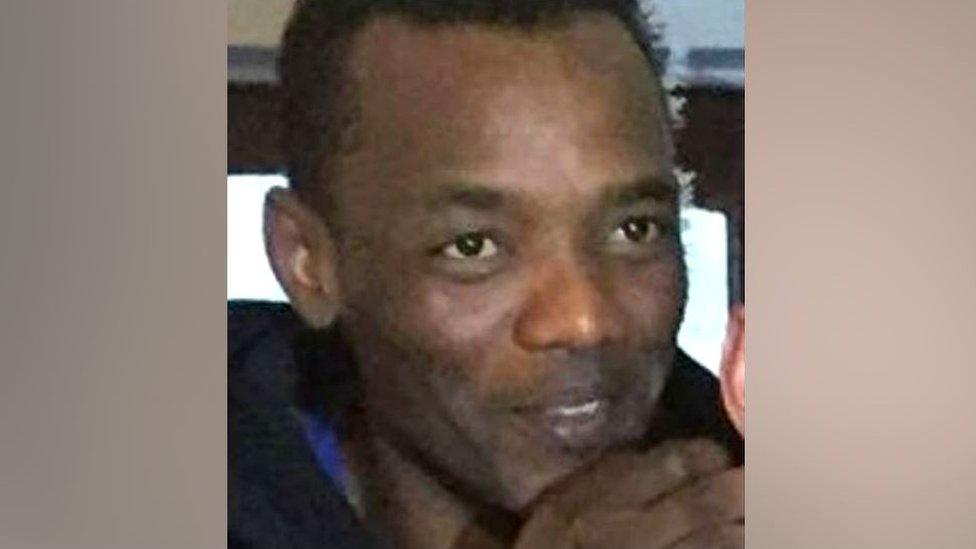
- Published13 September 2018
